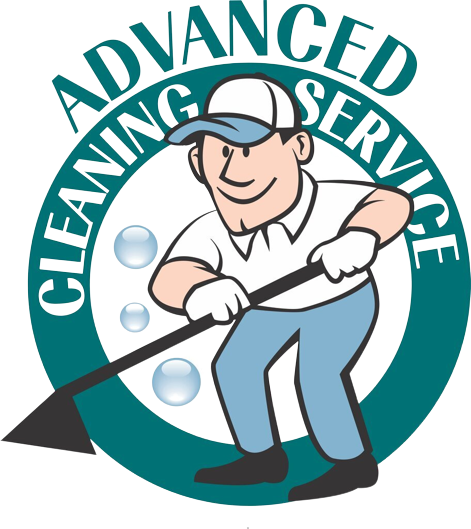Pressure washing is exactly what it sounds like—in a nutshell, pressure washing involves pressurizing water in a machine called a pressure washer (genius how they did that) to clean dirty surfaces. Pressure washing is a great way to thoroughly and quickly clean large surfaces (such as the outside walls of your home or business or your driveway and sidewalks) of the inevitable mold, grime, grease, and stains that result from elemental exposure and frequent traffic. Pressure washing is vital for the aesthetics and the upkeep of residential and commercial properties.
How Do Pressure Washers Work?
For a more nuanced understanding of how pressure washing works, you have to understand how pressure washers work. Pressure washers are available for personal or commercial use with commercial pressure washers having a lot more power. Pressure washers are powered either by a gas engine or an electric motor.
Water is delivered to the pressure washer from the garden hose. The water is moved through a water pump, which is powered by the machine’s engine or motor. The pressurized water gets pushed through a high-pressure hose, which is attached to a spray gun. When the spray gun’s trigger is pulled, the water mixes with the air and comes out of the nozzle at an intense speed.
The type of tip and extension being used plays a role in the intensity of the rate in which the water comes out.
What Matters in Pressure Washing?
Two factors matter when it comes to pressure washing:
· Gallons per minute (GSM) or the gallons of water delivered to the pray gun per minute
· Pounds per square inch (PSI) or the water pressure measured at output; pressure washers range in PSI from 1,500 to 4,000, which at minimum is 30 times more forceful than your average garden hose PSI
The higher the GSM and the PSI, the more effective the pressure washing. Of course, as with all things, bigger isn’t always better. Applying too much power to the wrong surface or item will damage or destroy whatever it is that you’re trying to pressure wash.
What Can You Pressure Wash?
While arguably you can pressure wash anything, it doesn’t necessarily mean that you should (more on that in a moment). Pressure washing is often employed for the following:
· Grimy sidewalks and driveways
· Moldy brick patios
· Dirty home exteriors
· Greasy garage floors
· Wood decks
· Metal exterior dining furniture
· Walls covered in graffiti
· Lawn tools
· Personal or commercial vehicles
With an electric pressure washer, you can also clean indoor surfaces such as tile, baths, and showers. It is hopefully needless to say that you should never use a gas-powered pressure washer indoors.
Among things you should never attempt to pressure wash are people and pets. You should also not point the pressure washer at yourself. Thousands of people are injured each year due to improper use of pressure washers.
Why Hire Professionals for Pressure Washing
While personal safety is a good reason to consider hiring professionals to handle your pressure washing (after all, if you’re not using a pressure washer, you can’t be hurt by a pressure washer), there are other reasons you may opt to hire a professional cleaner for pressure washing rather than buying or renting your own pressure washer.
· Is it worth the investment to purchase your own? Owning a pressure washer isn’t a bad idea, but if you’re not going to use it often enough, then it makes more sense to rent one or to hire a professional.
· If you choose to purchase a pressure washer, do you have space to store it? Pressure washers also have to be cleaned, maintained, winterized, etc.
· Do you have the time to do your own pressure washing? Lower-intensity pressure washers typically purchased by homeowners can get the job done, but they can also take two to three times longer than commercial grade ones.
· Are you sure you know what you’re doing?
o Anyone operating a pressure washer be it their own or rented needs to invest the time in reading the entire instruction manual, so they don’t damage the machine or injure themselves while operating it.
o Next, they need to familiarize themselves with the various attachments (many, such as brushes for washing cars, extension wands for two-story homes, and surface cleaners for driveways and sidewalks, are sold separately).
o Finally, they need to research to know what degree of pressure whatever they’re cleaning can safely take. Using too high a PSI can damage vinyl siding, tear up shingles, rip mortar from brick, and cause other costly property damage. Lasting damage can occur in the form of moisture and mold getting into attics, cracks, and other areas exposed by damage.
Professionals will not only have all of the equipment (including industrial-grade pressure washers capable of getting any job done), but they’ll also have the know-how for using the machine and for not inflicting damage to the surfaces that they’re pressure washing for you.
That said, regardless of who does the work, pressure washing, which should be completed annually for most projects such as cleaning sidewalks, driveways, and building exteriors, is an incredibly efficient process for keeping your home or business pristine and functional.
Advanced Cleaning takes professional pressure washing to the next level with the latest technology. By using hot water and lower PSI, Advanced Cleaning power washes your surfaces safely and efficiently with no soggy aftermath.



